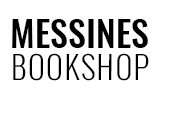Love in Time of War: Letter Writing In The Second World War
Author(s): Deborah Montgomerie
Letter Writing In The Second World War This book traces the emotional and psychological ways by which New Zealanders made sense of the upheavals of war. It shows movingly and graphically that NZ soldiers were not inarticulate and insensitive 'hard men' but kept their sense of life before and after the war by the messages of love, hope and longing that they sent back home. Love in Time of War tells three stories brought to life by wartime correspondence. Bob Wilson, a Northland man serving in the Middle East, writes to his parents about route marches, desert camps and army food; Gay Gray, yearning for her absent soldier husband, describes Wellington during the invasion scare of December 1941; Jack Lewis stays in touch with his Auckland wife and daughters with jokes about scabby kids and fellow soldiers who pinch silk undies from Italian ladies. Behind all the stories lurk the anxieties of war. We too wait to find out what the future is going to bring, caught up in the drama and uncertainty of a crucial period in New Zealand history. First published July 2005.
Product Information
Deborah Montgomerie is a lecturer in history at the University of Auckland. She is the author of the very successful The Women's War (AUP, 2001) and co-editor of The Gendered Kiwi (AUP, 1999).
Introduction: Letters, Soldiers and Love in Time of War. 1. Dear Mum and Dad - Bob Wilson's War: Using a series of letters between a Northland soldier and his parents this chapter traces the complexity of the relationships between soldier sons and civilian parents. Bob Wilson died in 1943 after the Italian ship on which he was being held as a prisoner of war was torpedoed and sunk. The chapter ends the story the Wilsons' war with an account of his mother's efforts to find out what happened to her son after he was taken prisoner. 2. Dear Darling - Duncan and Gay Gray's War:Letters from civilians to soldiers (as opposed to letters from soldier's to civilians) are comparatively rare because few soldiers were in a position to archive the correspondence they received. Gay Booth, the Lady Editress of Wellington's Evening Post, married her sweetheart Duncan Gary shortly after the outbreak of war. A group of Gay Gray's letters to her husband survived the war because they were returned to sender after her husband went missing. Through them we can glimpse some of the emotional trials of wartime separation from the vantage point of one of the many civilian women attempting to put their lives on hold until their loved one's return. 3. My Dears - Jack Lewis' War: Jack Lewis was a father as well as a husband. The Lewis correspondence gives some of the tenor of soldiering through the latter half of the war when volunteering had become obsolete and the novelty of war worn thin. Unlike the other correspondence we have examined, these letters have the added dimension of including children among their addressees. The gendered identity Lewis crafted in his the letters was complex; he was at once a soldier, husband, father and man alone. Through these family letters we can discern some of the challenges of war from a parent's point of view: the excitement of being part of something big, the family routines giving way to new routines of troop life, the idealisation of family life in memory and in writing, and the truncated, yet still responsible relationship between a soldier father and his children. Conclusion Bibliography. Index
General Fields
- :
- : Auckland University Press
- : Auckland University Press
- : 0.385
- : 01 May 2005
- : 200x208mm
- : New Zealand
- : books
Special Fields
- : Deborah Montgomerie
- : Paperback
- : English
- : 940.548193
- : 100pp
- : BxW photographs


